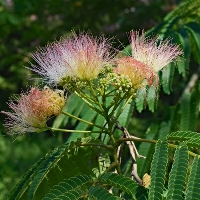高考英语听力练习材料 17
听下面5段对话,回答第1~5小题。
1.What has the man been doing?
A. Greeting his guests.
B. Cleaning the house.
C. Arguing with Maggie.
2.What is the man going to do?
A. Stay inside. B. Find his umbrella. C. Go out with an umbrella.
3.How long will the man have to wait?
A.5 minutes B.15 minutes C.20 minutes
4.What can we learn about the man from the conversation?
A. He is anxious to see his sister.
B. He wrote to his sister last month.
C. He is expecting a letter from his sister.
5.Which one is right?
A. The woman missed the travel.
B. The travel was a failure.
C. Bob didn’t take part in the travel.
听第6段材料,回答第6~7小题。
6.What is the man going to do?
A. He is going to a dancing school.
B. He is going to run a dancing school.
C. He is going to find a new job.
7.How is the woman getting on with her work?
A. She has yet to reach the top.
B. She thinks she is very successful.
C. She can’t bear any boss.
听第7段材料,回答第8~10小题。
8.How did the woman go shopping that morning?
A. On foot. B. By taxi. C. By car.
9.What is in the woman’s handbag?
A. The front door key. B. Her bankbook. C. The check(支票).
10.Where does the conversation most probably take place?
A. At a tailor’s shop. B. At the police station. C. At the library.
听第8段材料,回答第11~13小题。
11.What is the mother going to do tomorrow?
A. To watch TV.
B. To plant trees.
C. To cut down some trees.
12.What does the mothe r want her son to know most of all?
A. Tree-planting Day is important to man.
B. Cutting down trees is necessary to man.
C. Trees are very important to man.
13.What do you think of the boy?
A. He likes to ask questions.
B. He enjoys planting trees.
C. He knows nothing about planting trees.
听第9段材料,回答第14~17小题。
14.Why can’t Mrs. Taylor help Paul right away?
A. Because she doesn’t know the word, either.
B. Because she is reading a magazine.
C. Because she is watching a film on TV.
15.Why is Paul asking so many questions?
A. To improve his spoken English.
B. To know more about the family.
C. To get closer to the family.
16.How many people are there in the Taylors’ family?
A. Three.
B. Four.
C. Five .
17.What can you infer from the dialogue?
A. The Taylors don’t like Paul.
B. English is not Paul’s n ative language.
C. English words are difficult for native speakers to explain.
听第10段材料,回答第18~20小题。
18.Why are many roads closed in the north?
A. Because of heavy rain.
B. Because of strong winds.
C. Bucause of fallen stones from mountains.
19.In which part of the country have fifty houses been flooded?
A. In the south. B. In the north. C. In the east.
20.What happened in the west?
A. Many boats were missing.
B. Four people died in a river.
C. Two villages were under water.
第一节
听下面5段对话,回答第1~5小题。
(Text 1)
W: Hi, Mark. How is everything?
M: I’m a bit busy right now. We’ve got guests coming for the weekend and the house is so untidy. Maggie, you know, I hate housework.
(Text 2)
W: Looks like rain. Better look for your umbrella.
M: Yeah, I think it’s definitely going to rain. That’s why I’m not going out.
(Text 3)
M: The bus to the seaside left 5 minutes ago. How often does it come?
W: Every 20 minutes.
(Text 4)
M:I haven’t heard from my sister since last month.
W: Don’t worry, Charlie. Letters from the United States can be slow sometimes.
(Text 5)
M: Did everyone have a good time on your visit to Paris?
W: Yes, but we all missed Bob.
第二节
听第6段材料,回答第6~7小题。
(Te xt 6)
W: H i, David. Haven’t seen you for ages. How are you getting along with your work?
M: Hi, Susan. Not so well as expected. I’ve left my position. I can’t bear the rudeness of my boss any longer.
W: What are you going to do then?
M: No idea. Anyway, I’ve got to think about it seriously. And you?
W: I’ve been very successful as a dancer. I like this kind of life. It is so exciting.
M: You can’t do it for ever.
W: No, but I’ve decided to open a dance school once I’ve moved to the top. A lot of young dancers need better training, don’t they?
M: That’s a wonderful idea.
听第7段材料,回答第8~10小题。
(Text 7)
M: May I help you, madam?
W: Well, I hope so. You see, I can’t find my handbag with my mobile phone and some books in it. I’ve tried everywhere.
M: Were they the only things in the bag?
W: Well, no. My front door key as well.
M: I’m afraid, madam, we’re not having much luck. When did you last have your bag with you?
W:I haven’t seen it ever since I went shopping this morning. I went by car and stopped outside the tailor’s. I had my mobile phone with me then. I think I put it in my bag but I’m not so sure.
M: Di d you ask the tailor?
W: Yes, and I’ve also been back to the shopping center.
M: So you didn’t buy anything at the shopping center?
W: No. Well, I’ve checked there...oh, dear. I’ve been awfully silly. I think I’ve left the bag there.
听第8段材料,回答第11~1 3小题。
(Text 8)
Li Ming: Wha t are you doing, Mum?
Mum: I’m getting something ready for tomorrow. Tomorrow is Tre e-planting Day.
Li Ming: Tree-planting Day? What do people do on this day, Mum?
Mum: Many, m any people will go and plant trees.
Li Ming: Why do they do tha t?
Mum: To make the earth more beautiful. And to make our life better.
Li Ming: But I often see people on TV cut down many big trees. Why do they do that, Mum?
Mum: Hm, to make paper, houses, and to make our life better.
Li Ming: To make our life better, too? I just don’t understand. Mum, why do many people go and plant trees on the same day?
Mum: Oh, my dear son. It’s hard to explain to you. When you grow up, you will understand. Just remember trees are very important to us.
听第9段材料,回答第14~17小题。
(Text 9)
M: Hello, Mrs. Taylor. Can you help me? I’m doing my homework and I can’t understand this word.
W: Which one? Oh, I can’t help you right away...I’m watching something on TV.
M: Oh? What are you watching?
W: I’m watching a cowboy film.
M: Can Mr. Taylor help me?
W: No, he can’t now, Paul. He’s reading.
M: What is he reading?
W: He’s reading a magazine.
M: What about Kate?
W: Oh, she can’t help you either. She’s making a phone call now.
M: Oh? Who’s she calling?
W: She’s calling her boyfriend.
M: Then where is Jack? Can I ask for help from him?
W: He hasn’t been home yet...Why? You’re asking a lot of questions tonight, Paul.
M: Am I?...Well, I’m practicing my English.
听第10段材 料,回答第18~20小题。
(Text 10)
Good evening! Tonight the main news is about the bad weather we are having. Storms are reported in all parts of the country. In the north many roads are closed because of high winds. Two main roads near Glasgow are blocked by trees. In the south too, heavy rains and storms are reported. Near Dover fifty houses have been flooded and last night a lorry was blown over by the wind. In the east, quite a few areas have been flooded. Many small boats have been lost and this morning one boat was found two miles in land. Things are better in the west. But two villages had been flooded by a river. Four people nearly drowned in the flood. No storms are expected tomorrow.
1~5.BABCC 6~10.CBCAB 11~15.BCACA 16~20.BBBAC
 沉淀期待未来 2022-09-25 17:12:58
沉淀期待未来 2022-09-25 17:12:58









